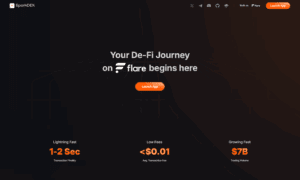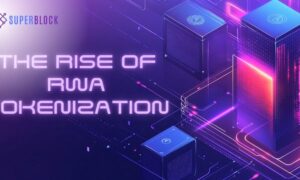Starting your own DAO – decentralized autonomous organization – is a fantastic opportunity and approach for a new type of business venture — or changing the paradigm that defines your current one. From infrastructure to financial opportunities, DAOs are a great way to rethink your business and stay not only competitive but on the cusp of cutting-edge tech. However, a critical step in this process is the DAO registration, a procedure that legally establishes your organization and sets the stage for its operations. DAOs are a difficult structure to comprehend and create, and many errors can be committed along the way — costly ones at that. Therefore, it’s crucial to stay on top of the most common errors that could end up ruining your project. In this article, we’ll give you a list of frequent errors made when starting a DAO.
What is a DAO?
DAOs have become a novel and rather a unique concept among decentralized finances and governance. A Decentralized Autonomous Organization – DAO – is simply a business that uses smart contracts to run on a blockchain. It uses crypto-embedded security and protocols and blockchain tech to govern itself and its shareholders. The best thing about DAOs is that decisions are no longer made by a single central authority — they are made by its members as a whole. And they are made following the base programming of said smart contracts. In other words, they are protected by laws and rules that can’t be obfuscated or redacted so easily.
The rise and adoption of DAOs within different industry sectors — what has caused this rapid change? This technological leap? And why are so many people embracing it?
DAOs at their core have the ability of DAOs to change. With DAOs’ you can say goodbye to intermediaries and central authorities. You can make better deals and protect those you already have by using smart contracts and tokenizing them. And, if you pick the right jurisdiction you can also reap the benefits of a bevy of incentives — including tax breaks.
DAOs contribute to lowering costs and aid in streamlining operations. This is also why financial institutions, real estate, supply management, and art businesses are so fond of DAOs.
Finally, another factor that influences the growing attention towards DAOs is its welcoming environment and community mentality. One where people are free to share their knowledge and take part in decision-making processes. This has resulted in an increased number of projects, where participants co-manage and provide initiatives.
Why is it important to understand the potential pitfalls before starting a DAO?
Like any business, there is always a modicum of risk management when it comes to launching them — and as the business evolves and grows that modicum changes, and those risks pivot into new territory. It’s important to understand your model’s threats and your risks in order to properly manage them and to rationalize your expectations — in other words, you need to comprehend where the punches are coming from in order to duck. By doing so, individuals can create strategies to detect errors beforehand, so they can be addressed.
Second, understanding your platforms and business model’s pitfalls gives you the edge when it comes to spearheading decisions throughout the DAO’s lifespan. It enables stakeholders to make informed choices and adapt to unforeseen circumstances. This helps maintain the organization’s stability and minimizes the likelihood of failure.
Last but not least, knowing the challenges associated with DAOs helps in setting realistic expectations. DAOs operate in a complex and rapidly changing environment, and being aware of potential pitfalls helps manage expectations and avoid unnecessary disappointment or frustration. It allows you to temper your expectations.
Mistakes to avoid when starting a DAO
When starting a Decentralized Autonomous Organization – DAO – it is important to avoid common mistakes that can negatively influence it.
Here are some hiccups to consider before you start a DAO:
Not clearly defining its purpose and goals
Not having a clear purpose or goal can lead to chaos and uncertainty. Make sure that you know in advance what you want to achieve with your DAO. Understand your objectives and clearly map your project out. Have a different set of goals and timeframes for achieving them.
Neglecting legal considerations
Always seek legal advice to guarantee that your DAO complies with the laws to avoid legal issues. At MIDAO we simply can’t stress this enough. There are liability issues involved that can end up hurting you in the long run. The news reports, internationally, are besieged by stories of a DAO or digital financial institutions that – due to one mistake or another – have found themselves at the crosshairs of a federal judge.
Overlooking the importance of the governance structure
An undefined governance structure can lead to conflicts and a lack of consensus. Designing a strong governance framework ensures fair decision-making and participation. Most projects of this kind are structured around a very detailed – and often rigid – framework. One that takes into account every inevitability and whose length often defies this of a dictionary.
Inadequate security measures
Building a secure infrastructure can protect DAOs’ digital assets. The average cost of a breach, nowadays according to IBM, is $4 million. And that’s just for a boutique business — DAO deals with not only sensitive information but highly classified financial assets. A breach could end up breaking that project’s back in a flash.
Insufficient community engagement
DAOs prosper on community participation — failing to engage and listen to your community can lead to a loss of support. Keep open communication channels and encourage participation.
Lack of transparency and accountability
Failing to be transparent about decisions, resource allocation, and governance processes can lead to skepticism and reduced participation. A Decentralized Autonomous Organization’s main mutant power is the fact that it is transparent — unlike other financial institutions and models, traditional ones, it builds its reputation on the fact that everything is out in the open.
Neglecting tokenomics
Tokenomics is the economic aspect of a DAO. If you ignore this prime directive, it can lead to an imbalance of power and misaligned incentives. Design a well-thought-out tokenomics model that encourages participation, aligns incentives, and ensures a healthy ecosystem.
Avoid mistakes today so they don’t cripple you in the future
Starting your own DAO can be incredibly beneficial, but it’s important to be aware of frequent errors to avoid. To ensure a successful DAO, always remember to keep away from:
- Not having clear goals and purposes.
- Ignoring legal considerations.
- Not establishing a well-defined governance structure.
- Not protecting your data against breaches.
- Failing to engage with the community to secure your success.
- Neglecting transparency in your operations.
- Ignoring tokenomics
By always keeping these typical pitfalls in the foreground you can approach the development and administration of your DAO with a more thorough understanding, improving your chances of success and making wise decisions.



































